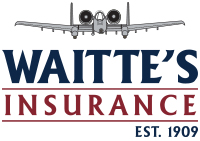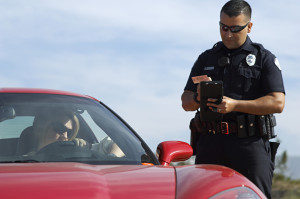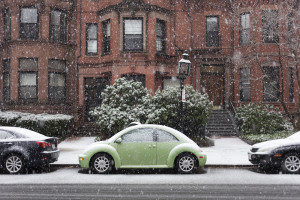 Thanksgiving is a holiday that all family members can share in and enjoy; it is the one time of year when your entire family can come together, sometimes from all areas of the nation and beyond. However, the importance of Thanksgiving as a holiday can only be matched by the importance of staying safe and vigilant; because it is such a prominent holiday, there are many more dangers during this time that people don’t experience during the rest of the year. Thankfully, by taking preventative measures, you can provide a safe Thanksgiving every single year.
Thanksgiving is a holiday that all family members can share in and enjoy; it is the one time of year when your entire family can come together, sometimes from all areas of the nation and beyond. However, the importance of Thanksgiving as a holiday can only be matched by the importance of staying safe and vigilant; because it is such a prominent holiday, there are many more dangers during this time that people don’t experience during the rest of the year. Thankfully, by taking preventative measures, you can provide a safe Thanksgiving every single year.
Fire Prevention
Three times as many fires happen during Thanksgiving than any other time of year. The vast majority of these fires are started in the kitchen, so keep the following tips in mind when cooking:
1. Make sure to secure any loose hair or clothing when cooking; long sleeves could trail in a gas flame or burner, catching fire and spreading it to the rest of your home.
2. Use caution with turkey fryers; because people often use them for the first time on Thanksgiving, they pose a distinct fire hazard.
3. Keep a fire extinguisher on hand just in case a fire breaks out, and make sure that you and your family members know how to use it.
4. Stand by your food; don’t leave the kitchen when something is on the stovetop.
5. Keep children away from the stove at all times.
Home Security
If you are travelling away for Thanksgiving, it is crucial to keep your home safe from burglars, who will take advantage of your empty home. Follow these tips for maximum safety:
1. Don’t post your plans on social media; burglars can keep track of this and use it to their advantage.
2. Make sure to remove any ladders, decorations or other objects that provide easy access to your windows or any other entrances in your house from the outside.
3. Invest in a home security system, which will alert you if anyone breaks into your home.
4. Don’t leave any signs that you are away; for example, put your lights on a timer, and turn off your phone so that it does not ring off the hook and indicate that you are not there. Have a friend come by to pick up your mail so that it does not pile up out front.
Travel Safety
When traveling to meet family and friends during Thanksgiving, keep the following tips in mind:
1. Be prepared: if you are driving, carry an emergency road kit, and leave yourself extra time in case of bad weather.
2. Don’t drink and drive, and don’t text and drive. It is illegal and you drastically increase your chances of having an accident.
3. If you are flying, try to get to the airport early, because Thanksgiving crowds will cause significant delays.
In the event that unforeseen circumstances have occurred and you require either an automobile or homeowners’ policy consult, please don’t hesitate to contact our office.
Waitte’s Insurance Agency hopes that you and your loved ones have a wonderful and safe Thanksgiving Holiday!

 A bit mystical, magical and fun, Halloween draws all kinds of kids in search of candy treats and harmless gags. Unfortunately, this popular childhood staple could run the risk of turning into a nightmare. Taking a few simple precautions can keep the excitement alive and the haunting all in fun without compromising the safety of your home or your little ones.
A bit mystical, magical and fun, Halloween draws all kinds of kids in search of candy treats and harmless gags. Unfortunately, this popular childhood staple could run the risk of turning into a nightmare. Taking a few simple precautions can keep the excitement alive and the haunting all in fun without compromising the safety of your home or your little ones.
 If you have ever received a traffic ticket, your first instinct may have been to fight it – after all, many people believe that the citation was unjust and that they did not deserve the harsh penalty that they received. However, roughly only 3 percent of drivers who receive traffic citations actually contest them in court, and choosing to do so relies purely on the circumstances surrounding the ticket. You’ll want to ask yourself the following questions before you consider fighting Connecticut traffic violations
If you have ever received a traffic ticket, your first instinct may have been to fight it – after all, many people believe that the citation was unjust and that they did not deserve the harsh penalty that they received. However, roughly only 3 percent of drivers who receive traffic citations actually contest them in court, and choosing to do so relies purely on the circumstances surrounding the ticket. You’ll want to ask yourself the following questions before you consider fighting Connecticut traffic violations Connecticut drivers aren’t strangers to driving in the snow. However, we can all use a little reminder as to what to do to properly prepare for the winter season; which can put exponential wear and tear on your vehicle. There are a few simple precautions you can take to help your car survive the winter in good condition. Wear and tear cannot only affect the life of your vehicle, but also your car insurance premiums.
Connecticut drivers aren’t strangers to driving in the snow. However, we can all use a little reminder as to what to do to properly prepare for the winter season; which can put exponential wear and tear on your vehicle. There are a few simple precautions you can take to help your car survive the winter in good condition. Wear and tear cannot only affect the life of your vehicle, but also your car insurance premiums.